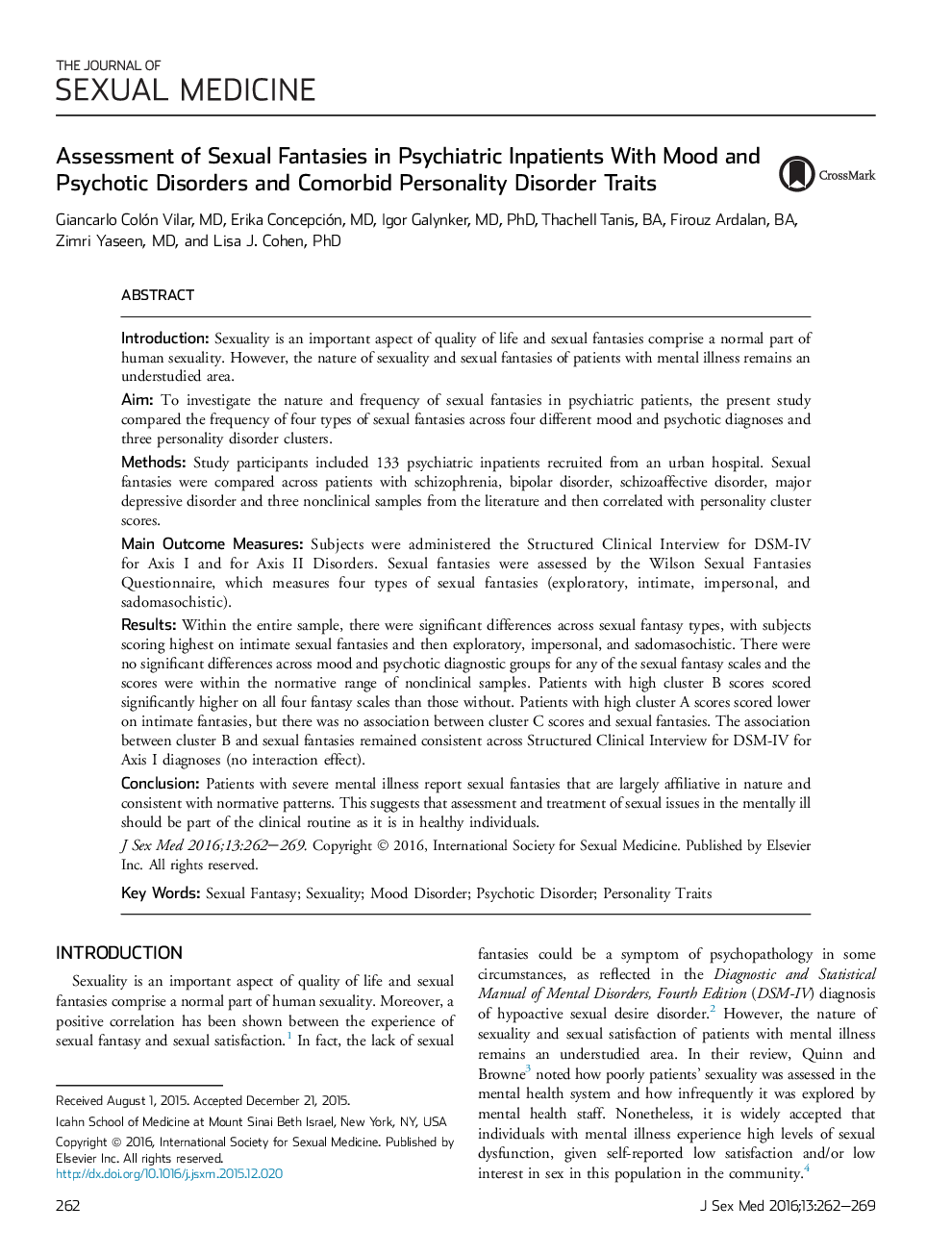| Article ID | Journal | Published Year | Pages | File Type |
|---|---|---|---|---|
| 4269300 | The Journal of Sexual Medicine | 2016 | 8 Pages |
IntroductionSexuality is an important aspect of quality of life and sexual fantasies comprise a normal part of human sexuality. However, the nature of sexuality and sexual fantasies of patients with mental illness remains an understudied area.AimTo investigate the nature and frequency of sexual fantasies in psychiatric patients, the present study compared the frequency of four types of sexual fantasies across four different mood and psychotic diagnoses and three personality disorder clusters.MethodsStudy participants included 133 psychiatric inpatients recruited from an urban hospital. Sexual fantasies were compared across patients with schizophrenia, bipolar disorder, schizoaffective disorder, major depressive disorder and three nonclinical samples from the literature and then correlated with personality cluster scores.Main Outcome MeasuresSubjects were administered the Structured Clinical Interview for DSM-IV for Axis I and for Axis II Disorders. Sexual fantasies were assessed by the Wilson Sexual Fantasies Questionnaire, which measures four types of sexual fantasies (exploratory, intimate, impersonal, and sadomasochistic).ResultsWithin the entire sample, there were significant differences across sexual fantasy types, with subjects scoring highest on intimate sexual fantasies and then exploratory, impersonal, and sadomasochistic. There were no significant differences across mood and psychotic diagnostic groups for any of the sexual fantasy scales and the scores were within the normative range of nonclinical samples. Patients with high cluster B scores scored significantly higher on all four fantasy scales than those without. Patients with high cluster A scores scored lower on intimate fantasies, but there was no association between cluster C scores and sexual fantasies. The association between cluster B and sexual fantasies remained consistent across Structured Clinical Interview for DSM-IV for Axis I diagnoses (no interaction effect).ConclusionPatients with severe mental illness report sexual fantasies that are largely affiliative in nature and consistent with normative patterns. This suggests that assessment and treatment of sexual issues in the mentally ill should be part of the clinical routine as it is in healthy individuals.
